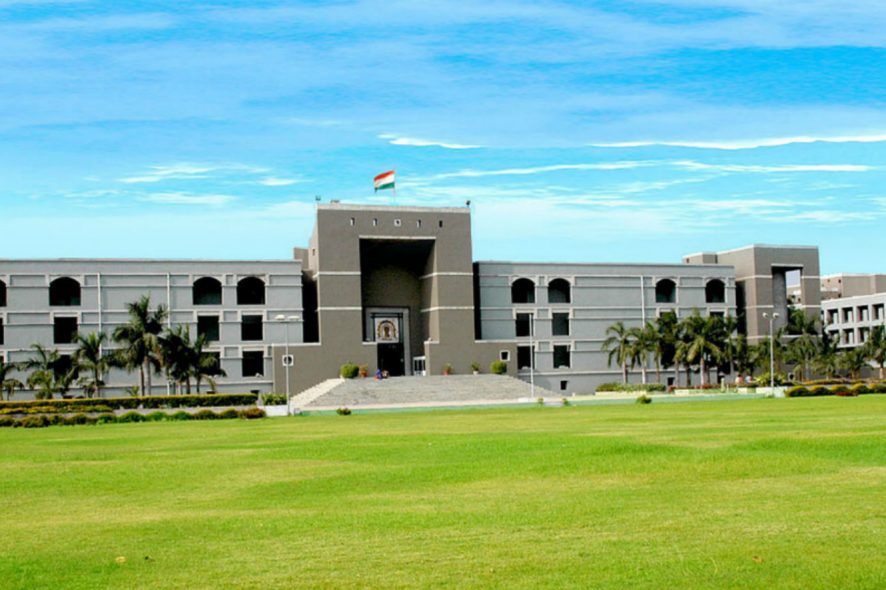Gujarat High Court: The Bench of A.P. Thaker, J., allowed the petition filed under Section 482 of the Criminal Procedure Code for quashing and setting aside the FIR filed under Sections 304(A) read with Section 114 of the Penal Code, Sections 3(1)(j), 3(2)(v) of the Scheduled Caste and Scheduled Tribes (Prevention of Atrocities) Amendment Act, 2015 and Sections 5, 6, 7 and 9 of the Prohibition of Employment as Manual Scavengers and their Rehabilitation Act, 2013.
The brief facts of the case were that the complainant was a member of a scheduled caste who on the date of the incident received a message that his father died when he went to clean drainage in the society of the petitioners. He went there and found his father dead. The petitioners contended that the deceased never entered into said side drainage and he died due to heart problem and not by any negligence on the part of the petitioners. Further, they stated that the complainant had filed the complaint because he wanted compensation from the government. It was also contended that they had never called the deceased for any work nor were they present at the time of the alleged incident. Mr. Manish Patel, advocate for the petitioners, stated that the cause of death as revealed from the postmortem report was natural death due to cardiac-respiratory failure.
The Court while deciding the case emphasized on the settled law that for considering the petition under Section 482 of the Code, it was necessary to consider as to whether the allegations in the complaint prima facie make out a case or not and the Court was not to scrutinize the allegations for the purpose of deciding whether such allegations were likely to be upheld in trial. It was held that a criminal proceeding could be quashed where the allegations made in the complaint did not disclose the commission of an offence under the Penal Code. The complaint must be examined as a whole, without evaluating the merits of the allegations. Though the law does not require that the complaint reproduce the legal ingredients of the offence verbatim, the complaint must contain the basic facts necessary for making out an offence under the Penal Code. It was further stated that a Court exercising its inherent jurisdiction must examine if, on its face, the averments made in the complaint constitute the ingredients necessary for the offence. The FIR was registered on the basis of hearsay and relying on the postmortem report the application was allowed. [Jaykarbhai Kiritbhai Agnihotri v. State Of Gujarat, 2019 SCC OnLine Guj 761, Order dated 25-04-2019]







